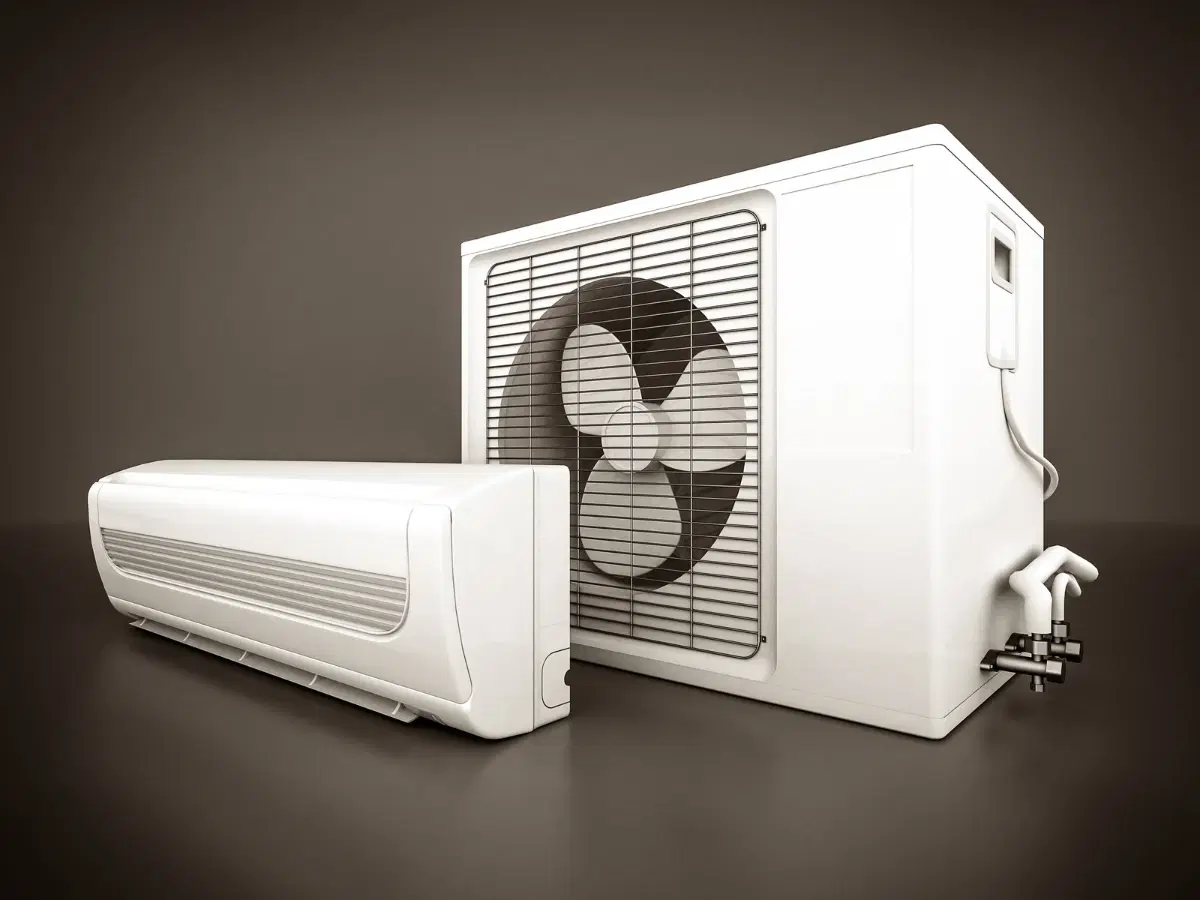
Home Appliances
•04 min read
Imagine coming home on a scorching day, only to discover that your air conditioner not blowing cold air. This guide serves as a comprehensive checklist to help you troubleshoot issues, maintain your home cooling system, and address why your AC is not cold. We will walk you through simple preliminary checks, common problems, advanced troubleshooting, and when to call a professional for AC repair tips.
Before diving deeper into troubleshooting, verify that your thermostat is in the correct configuration. Ensure it is set to 'cool' mode and that the temperature is lower than your current room temperature. Incorrect thermostat settings are one of the most common reasons your air conditioner not blowing cold air.
A dirty or clogged air filter can restrict airflow and reduce efficiency. Inspect your filter and clean or replace it if necessary to allow free airflow, which is crucial for an efficient home cooling system.
Sometimes the issue could be as simple as a tripped circuit breaker. Check your electrical panel to ensure the breaker for your AC unit hasn’t been triggered. Reset the breaker if needed, and confirm that your AC receives consistent power.
Low refrigerant levels, often caused by leaks, can prevent your air conditioner from cooling effectively. If you suspect a refrigerant leak, it is best to seek professional assistance. Qualified technicians can safely inspect, check, and refill refrigerant to restore peak performance.
Over time, dust and debris can accumulate on the evaporator and condenser coils, reducing cooling efficiency. Regular cleaning of these components is essential. While light cleaning can be done by you, professionals can ensure deep cleaning without damaging delicate coil surfaces.
The compressor is the heart of your cooling system. If it malfunctions, then your AC is not blowing cold air. Additionally, a faulty capacitor, which provides the jolt needed for the compressor and fan motor to start, could be the culprit. If you notice unusual noises or a lack of airflow, it may be time to have a pro examine the compressor or replace the capacitor.
Ensure that your vents are not obstructed by furniture, curtains, or other items. Blocked vents compromise the overall airflow, resulting in poor cooling performance. Simple adjustments or cleaning can restore adequate airflow throughout your room.
Leaks in ductwork can lead to significant energy loss. Ensure that ducts are properly sealed using duct tape or mastic sealant. Keeping ductwork in good condition not only solves the problem of your air conditioner not blowing cold air but also promotes energy efficiency.
To overcome recurring issues, regular air conditioner maintenance is essential. Annual checks by professionals can identify potential issues early and keep your cooling system running efficiently. Ensuring your unit is well-maintained can ward off many common air conditioner problems.
Expert Tip from Tata Neu
Regular maintenance is key to avoiding unexpected HVAC issues. Scheduling an annual service helps ensure that your home cooling system is always ready to beat the heat. Consider booking a routine check-up with expert technicians for optimal performance.
A malfunctioning fan motor can hinder the circulatory cycle necessary for proper cooling. Listen for unusual sounds or observe reduced airflow coming from vents. If any signs of motor trouble are present, contact a professional to inspect and repair your AC unit.
A blocked condensate drain can lead to water leakage and diminished efficiency. Verify that the drain is clear of any obstructions, allowing proper water flow. Regular clearing of the condensate drain is important to avoid potential water damage and efficiency loss.
If you experience persistent problems despite resolving the common issues, there may be more complex mechanical issues. Advanced problems might include faulty wiring or internal component failures. In such cases, expert review and repair are highly recommended to restore cool air delivery.
If your air conditioner not blowing cold air continues despite following troubleshooting tips, it may be time to call for professional repair. Unusual noises and persistent inefficiencies are strong signals that your unit requires expert examination and repair for lasting resolution.
High energy bills coupled with inefficient cooling can put additional pressure on your budget. Professional assessment might reveal underlying issues that, when resolved, could lower your energy consumption and enhance overall efficiency.
Ensuring your home cooling system performs at its best not only keeps you comfortable but also saves you money in the long run. Routine inspections and preventive maintenance can help address common issues and delay the need for large repairs.
Often it is due to improper thermostat settings, clogged air filters, or low refrigerant levels. Start with basic checks before considering professional repairs.
It is advisable to service your AC at least once a year to maintain its efficiency and prevent major issues.
You can perform light cleaning; however, a professional service is recommended for a thorough job, ensuring safety and effectiveness.
Inspect the condensate drain for blockages and ensure it is clear. Persistent leakage should be examined by a professional.
In summary, troubleshooting an air conditioner not blowing cold air involves a sequence of methodical checks—from thermostat settings and air filter maintenance to more advanced repairs involving refrigerant and compressors. Regular air conditioning troubleshooting not only improves performance but also extends the lifespan of your unit. By following this comprehensive checklist, you can pinpoint the root cause of many AC problems and decide when it is appropriate to seek professional help. Maintaining your cooling system through seasonal checks and periodic professional maintenance is key to ensuring comfort during the peak heat. That’s the essence of smart home upkeep and a reliable cooling experience.
Explore the benefits of routine maintenance to not only restore cooling efficiency but also to potentially earn NeuCoins on your Tata Neu transactions. Whether it’s beneficial AC repair tips, a quick check of your thermostat, or a professional inspection post-maintenance, keeping your home environment comfortable is a journey best taken with knowledgeable guidance and support.